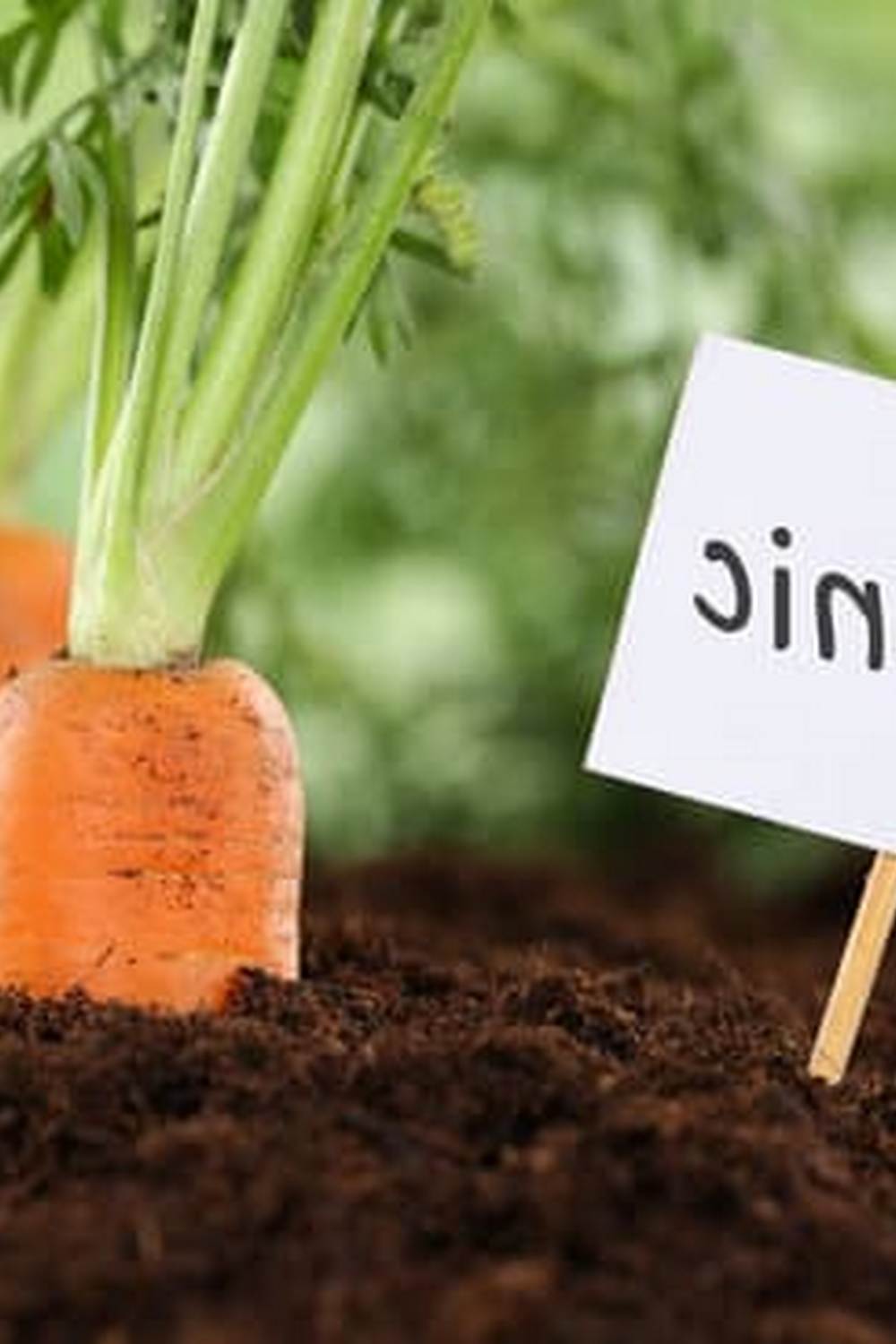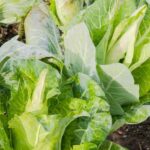Weed prevention is a crucial aspect of maintaining a healthy and productive vegetable garden. Many gardeners often wonder, “Is Preen good for vegetable gardens?” Preen is a popular weed preventer that can help keep unwanted plants at bay in your garden beds. It works by creating a barrier that inhibits weed seeds from germinating, ultimately reducing the need for manual weeding.
Understanding the role of weed prevention in vegetable gardens goes beyond just aesthetics. Weeds can compete with your vegetable plants for essential nutrients, water, and sunlight, hindering their growth and overall productivity. By using products like Preen, you can proactively manage weeds and give your vegetables the best chance to thrive.
In this article, we will delve into the specifics of Preen – what it is, its benefits for vegetable gardens, any potential drawbacks to consider, how to use it effectively in your garden beds, alternative weed prevention methods, safety concerns, and ultimately assess its effectiveness in helping you maintain a successful vegetable garden.
Whether you are a seasoned gardener or just starting out, this comprehensive guide will provide you with all the information you need to make an informed decision about using Preen in your vegetable garden.
What Is Preen
Preen is a popular weed preventer used in gardening, including vegetable gardens. It is a pre-emergent herbicide that works by creating a barrier on the soil’s surface, preventing weed seeds from germinating. This means that Preen does not kill existing weeds but rather stops new weeds from growing. The active ingredient in Preen targets the roots of weeds, hindering their growth and development.
One of the main advantages of using Preen in vegetable gardens is its effectiveness in controlling weeds without harming the vegetables themselves. Since Preen targets weed seeds before they sprout, it provides long-lasting protection against unwanted plants without affecting the growth of your crops. This can save gardeners time and effort by reducing the need for manual weeding throughout the growing season.
However, despite its benefits, there are some considerations to keep in mind when using Preen in vegetable gardens. It’s essential to follow the application instructions carefully and avoid using Preen near desired plants to prevent any potential damage. Additionally, some gardeners may have concerns about introducing synthetic chemicals into their gardening routine. In such cases, exploring organic weed prevention methods might be a better alternative for maintaining a healthy and natural vegetable garden environment.
| Pros of Using Preen in Vegetable Gardens | Cons of Using Preen in Vegetable Gardens |
|---|---|
| Effective at preventing weed growth without harming vegetables | Potential risk of accidental damage to desired plants if not applied properly |
| Saves time and effort by reducing manual weeding tasks | Concerns about introducing synthetic chemicals into gardening practices |
| Long-lasting protection against weed seeds germination | Does not target existing weeds, so additional measures might be needed for established ones |
Pros of Using Preen in Vegetable Gardens
Suppresses Weed Growth
Using Preen in vegetable gardens is beneficial as it helps suppress weed growth effectively. By creating a barrier on the soil surface, Preen prevents weed seeds from germinating and establishing roots. This can significantly reduce the amount of time and effort required for manual weeding, allowing gardeners to focus on other essential tasks in their vegetable garden. With fewer weeds competing for nutrients, water, and sunlight, the vegetables can thrive better and produce a higher yield.
Long-Lasting Weed Control
One of the advantages of using Preen in vegetable gardens is its long-lasting weed control properties. Preen forms a protective layer that inhibits weed growth for several weeks, providing continuous protection against unwanted plants. This means less frequent applications are needed compared to other weed prevention methods, saving both time and money for gardeners. Additionally, the prolonged effectiveness of Preen ensures that vegetables have ample time to establish themselves without being overshadowed or choked out by weeds.
Safe for Vegetables
Another key benefit of using Preen in vegetable gardens is that it is safe for use around edible crops. Preen targets weed seeds specifically and does not harm established plants or affect their growth.
This makes it an ideal choice for gardeners who want to maintain a healthy and bountiful vegetable garden without compromising the safety of their harvest. With proper application following the instructions provided on the product label, Preen offers effective weed prevention without posing any risks to the vegetables growing in the garden.
Cons of Using Preen in Vegetable Gardens
Using Preen in vegetable gardens has its benefits, but it also comes with some potential drawbacks and considerations that gardeners should be aware of. Here are some cons to using Preen in your vegetable garden:
1. Harmful to Pollinators: One major drawback of using Preen is that it can be harmful to pollinators such as bees. The chemicals in Preen can be toxic to these beneficial insects, which play a crucial role in the pollination process for many vegetables. This can have a negative impact on the overall health of your garden and ecosystem.
2. Chemical Residue: Another consideration when using Preen is the potential for chemical residue to remain in the soil. While Preen is designed to target weed seeds, there is a possibility that some of the chemicals may linger in the soil and potentially affect the growth of your vegetable plants. This could lead to issues with plant development and even negatively impact the quality of your harvest.
3. Cost: Using Preen as a weed prevention method in your vegetable garden can also come with a financial cost. Purchasing this product regularly can add up over time, especially if you have a larger garden area to treat. For some gardeners, this ongoing expense may not be feasible or necessary, especially when considering alternative, more cost-effective methods of weed prevention.
Overall, while Preen can be effective in preventing weeds in vegetable gardens, it is important for gardeners to weigh these potential drawbacks and considerations before incorporating this product into their gardening routine. Being mindful of the impact on pollinators, possible chemical residue, and financial costs associated with using Preen is essential in making an informed decision about whether it is the right choice for your vegetable garden.
Consider exploring alternative weed prevention methods that may better align with your gardening values and goals.
How to Use Preen in Vegetable Gardens
Preen is a popular weed preventer that can be effectively used in vegetable gardens to keep unwanted plants at bay. When properly applied, Preen forms a barrier on the soil’s surface, preventing weed seeds from germinating and taking root. This can save gardeners time and effort by reducing the need for manual weeding throughout the growing season.
To use Preen in your vegetable garden, follow these simple steps for best results:
1. Preparation: Before applying Preen, ensure that the soil is moist to help activate the product. Remove any existing weeds from the area where you plan to use Preen.
2. Application: Sprinkle Preen evenly on top of the soil according to the package instructions. Be careful not to apply too much as it can affect the effectiveness of the product.
3. Watering: After applying Preen, water your vegetable garden lightly to help activate the product and allow it to create a protective barrier on the soil surface.
4. Maintenance: Reapply Preen every 9-12 weeks throughout the growing season to maintain weed control in your vegetable garden.
By following these steps, you can effectively use Preen in your vegetable garden to minimize weed growth and keep your plants healthy and thriving.
| Benefits of Using Preen in Vegetable Gardens | Safety Tips When Using Preen |
|---|---|
| Prevents weed seeds from germinating | Keep children and pets away during application |
| Saves time and effort on manual weeding | Wear gloves and a mask when handling Preen |
| Helps maintain a neat and tidy garden appearance | Store Preen in a secure location away from food items |
Alternatives to Preen
When it comes to maintaining a vegetable garden, keeping weeds at bay is crucial to ensure the health and growth of your plants. While Preen is a popular weed prevention product, there are alternative methods that can also be effective in keeping your vegetable garden weed-free. Here are some different weed prevention methods to consider:
- Hand Weeding: One of the most traditional and effective ways to control weeds in a vegetable garden is by hand weeding. This method involves manually removing weeds from the soil, ensuring that they do not compete with your vegetables for nutrients and space.
- Mulching: Applying a layer of organic mulch, such as straw or wood chips, can help suppress weed growth by blocking out sunlight and preventing weed seeds from germinating. Mulching also helps retain moisture in the soil and regulate soil temperature.
- Crop Rotation: Rotating your crops annually can help disrupt the life cycle of weeds, as certain weeds may be specific to certain plant families. By rotating your vegetables each season, you can prevent the buildup of weeds that target particular crops.
While Preen may offer convenience in eliminating weeds in vegetable gardens, exploring these alternative methods can provide more sustainable and environmentally friendly options for weed prevention. Each method has its own benefits and considerations, so it’s important to choose the approach that best suits your gardening style and goals.
Whether you prefer manual weeding, mulching, or crop rotation, incorporating these alternative weed prevention methods into your vegetable garden routine can help maintain a healthy and flourishing garden without relying solely on products like Preen. Experimenting with different techniques may also help you discover what works best for your specific garden environment and plant varieties.
Safety Concerns
Protective Gear
When using Preen in vegetable gardens, it is important to consider your safety. Wear protective gear such as gloves and a mask when applying this product to prevent skin contact and inhalation of any particles. Additionally, make sure to wash your hands thoroughly after handling Preen to avoid any potential skin irritation.
Keep Children and Pets Away
To ensure the safety of children and pets, it is crucial to keep them away from areas where Preen has been applied. This product should be stored in a secure location out of reach of curious hands or paws. Once applied in the garden, create a barrier or temporary fence to prevent children and pets from coming into contact with the treated area until it has been properly absorbed into the soil.
Proper Disposal
After using Preen in your vegetable garden, it is essential to dispose of any unused product or packaging properly. Do not pour excess Preen down drains or water sources as it can contaminate the environment. Instead, seal the container tightly and dispose of it according to local waste disposal guidelines. By taking these precautions, you can ensure that Preen is used safely and effectively in your vegetable garden.
Conclusion
In conclusion, the use of Preen in vegetable gardens can indeed be beneficial for weed prevention. Preen works by creating a barrier that inhibits weed seeds from germinating, thus reducing the labor-intensive task of manual weeding. This can result in healthier vegetable plants as they are not competing with invasive weeds for nutrients and sunlight. Additionally, using Preen can save gardeners time and effort during the growing season, allowing them to focus on other aspects of garden maintenance.
However, it is important to consider the potential drawbacks of using Preen in vegetable gardens. Some gardeners may have concerns about the chemical composition of Preen and its impact on the environment. It is crucial to follow the application instructions carefully and avoid any contact with edible parts of the plants. Alternatives to using Preen include mulching, hand-weeding, or employing natural weed deterrents like corn gluten meal.
Ultimately, whether or not Preen is good for your vegetable garden depends on your gardening goals and personal preferences. If used correctly and cautiously, Preen can be a valuable tool for weed prevention in vegetable gardens. However, it is always a good idea to explore different methods and weigh the pros and cons before deciding on the best approach for maintaining a healthy and thriving vegetable garden.
Frequently Asked Questions
Is Preen Safe in Vegetable Gardens?
Preen is generally considered safe to use in vegetable gardens as long as it is applied correctly and according to the label instructions. It is important to avoid direct contact with edible parts of the plants to prevent any potential harm.
When Should You Not Use Preen?
Preen should not be used in areas where you plan to directly sow seeds, as it can prevent germination. Additionally, it should not be applied around desirable plants that have not yet established a strong root system, as it can inhibit their growth.
Can You Put Preen Around Tomatoes?
It is recommended to exercise caution when applying Preen around tomatoes, particularly young seedlings or transplants. Make sure that the product does not come into direct contact with the tomato plants themselves, focusing instead on applying it around the base of the plants where weeds are likely to grow.

If you’re looking to get into vegetable gardening, or are just looking for some tips on how to make your current garden better, then you’ve come to the right place! My name is Ethel and I have been gardening for years. In this blog, I’m going to share with you some of my best tips on how to create a successful vegetable garden.





